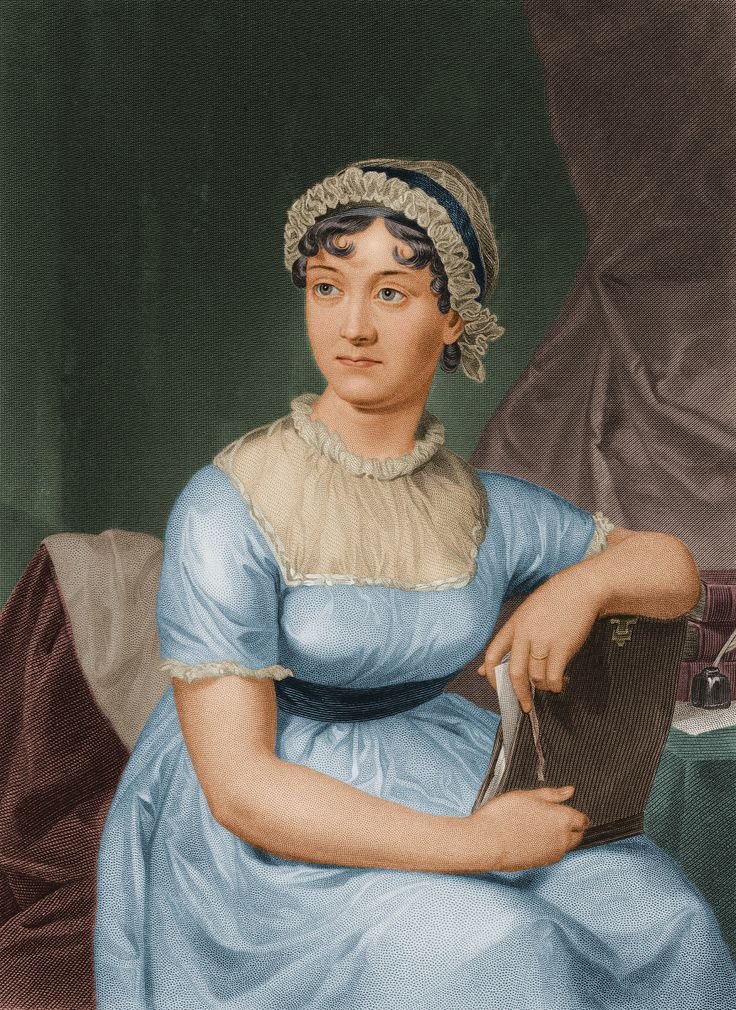
Jane Austen is a name that resonates with book lovers and literary enthusiasts around the world. Born in 1775, Austen is celebrated for her sharp wit, unforgettable characters, and stories that explore love, relationships, and society. Her works, such as “Pride and Prejudice”, “Emma”, and “Sense and Sensibility”, remain as popular today as they were over two centuries ago.
Jane Austen was born in Steventon, a small village in Hampshire, England, into a lively and loving family. The seventh of eight children, she grew up in a household that encouraged creativity and education. Her father, a clergyman, had an extensive library, and it became Jane’s haven.
She began writing as a teenager, crafting playful and satirical pieces for her family’s enjoyment. These early works, known as her Juvenilia, revealed her budding talent for storytelling and her knack for observing the quirks of human behavior.
In a time when women were rarely seen as professional writers, Jane Austen’s path to publishing wasn’t easy. Her first novel, “Sense and Sensibility”, was published anonymously in 1811, credited simply to “A Lady.” The book’s success paved the way for “Pride and Prejudice” in 1813, a novel that would become her most beloved work.
Austen’s stories are timeless because they focus on universal themes—love, class, and the complexities of human relationships. Her heroines, like Elizabeth Bennet and Emma Woodhouse, are strong, flawed, and endlessly relatable.
Jane Austen’s writing has a unique charm that continues to captivate readers:
- Sharp Social Commentary: Austen had a way of gently poking fun at the social norms of her time. Whether it’s the obsession with marriage or the rigid class distinctions, her stories hold up a mirror to society with humor and grace.
- Relatable Characters: Her characters feel like people you might know today—witty, ambitious, awkward, and complex. They grow, make mistakes, and learn, just like us.
- Romance with Depth: While love is a central theme, her novels aren’t just about happy endings. They explore the nuances of relationships, from misunderstandings to emotional growth.
Jane Austen’s novels give us a vivid glimpse into the late 18th and early 19th centuries. This was a time of strict social hierarchies, where a woman’s future often depended on marriage. Through her stories, Austen questioned these societal norms, creating heroines who sought more than just financial security.
Tragically, Jane Austen’s life was cut short. She passed away in 1817 at the age of 41. Despite her untimely death, her literary impact only grew stronger over time.
Her last two novels, “Persuasion” and “Northanger Abbey”, were published posthumously, ensuring that her voice would continue to be heard.
What makes Jane Austen so enduring? Her ability to understand people. Her stories remind us that while the world changes, human emotions and relationships remain the same.
From movie adaptations like “Clueless” and the BBC’s “Pride and Prejudice”, to modern retellings, Austen’s works have found new ways to connect with each generation.
Jane Austen’s genius lies in her ability to capture the beauty and complexity of everyday life. Her stories are timeless treasures that continue to inspire and entertain. Whether you’re a lifelong fan or new to her work, reading Austen is like stepping into a world where wit, romance, and insight reign supreme.
Through her unforgettable characters and sharp social commentary, Jane Austen reminds us of the power of storytelling—and why it will always matter.